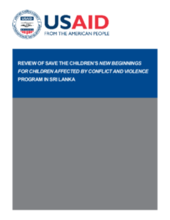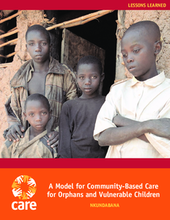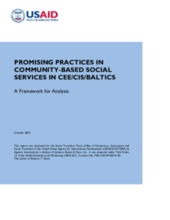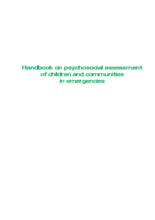Displaying 421 - 430 of 497
An evaluation of a programme in Sri Lanka that aimed to resettle and reintegrate children affected by armed conflict, prevent and respond to child abuse, and develop community based alternatives to institutional care.
A lessons learned document reviewing impacts of a community-based care and mentoring program for child-headed households in Rwanda.
Guidelines for when and how to make a decision regarding the best interests of the child in the case of emergencies. Includes useful information for addressing unaccompanied and separated children including, temporary and alternative care arrangements, tracing and reunification, and child participation.
Preliminary findings on life outcomes of Mozambican former child soldiers. Identifies specific interventions important to enabling former child soldiers’ recovery and reintegration.
Examines child protection issues for young girls associated with armed groups. Provides comprehensive policy recommendations.
Overviews the results from a workshop addressing child protection issues surrounding child collaboration in the Occupied Palestinian Territories.
A twelve page policy brief that outlines Save the Children's position on the type of protection children need in an emergency. Contains some statistical information.
Provides a framework for analysis of community-based social welfare services and linkages with government structures. Includes analysis of alternative care provision, de-institutionalization, programming for children with disabilities, standards of care, and overall social welfare sector reform.
A guidebook focusing on the assessment to be conducted when an emergency first hits or just after a major event in an armed conflict. Outlines the preparation needs of an assessment team and describes what an assessment should concentrate on.
Examines the planning, coordination, and early implementation of UNICEF’s programme to demobilize and reintegrate war-affected youth in the context of Afghanistan’s reconstruction process.










